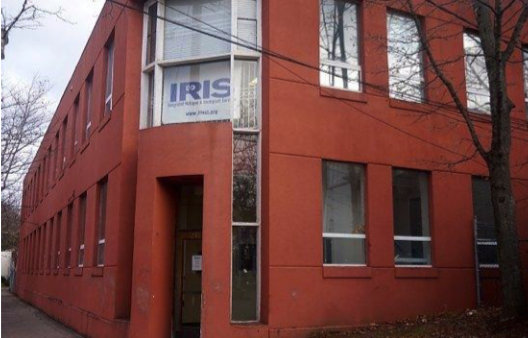
IRIS records which refugees have found jobs, in an effort to ensure they have stable sources of income.
They hesitantly moved towards the three open chairs in front of us and sat down, appearing to be, for a brief moment, a little apprehensive about the situation. That initial discomfort, however, quickly disappeared as we became acquainted. They introduced themselves as Sami, Bassam, and Nezar, Syrian refugees who arrived to America around four to six months ago.
Our conversation took place at the Integrated Refugee & Immigrant Services (IRIS) organization in New Haven, CT. Before we began, we asked Executive Director Mr. Chris George to help us translate our questions and their responses. We were told not to ask about their lives in Syria due to IRIS policy. Instead, we discussed their transition and current life in America, personal hardships, hobbies, and future plans. It was quite simple, everyday talk, but our conversation revealed more than we would have ever expected.
The three men unanimously agreed that the language barrier was perhaps the biggest obstacle they faced when they arrived in America. After all, they expressed, language is the key to everything. They went on to tell us that, in their transition, everyone they encountered in America has been incredibly helpful and kind. In fact, they didn’t have a whole lot to complain about — they were grateful for the support they received at IRIS; they expected but were still taken aback by the diversity in America; they hoped their children would receive a good education in the U.S.
Like Sami, Bassam, and Nezar, millions of Syrian refugees have left behind their families, jobs, and homes in Syria to escape the war and live a better life. Nearly 9 million Syrians have left their homes since the outbreak of the Syrian Civil War in 2011, and many of these refugees have fled to Jordan, Iraq, Lebanon, and Turkey. Another 6.5 million Syrians have been internally displaced within the country. President Barack Obama hopes to resettle a total of 10,000 Syrian refugees by October 1, 2016, but he has been falling behind his initial goal in recent months.
In Connecticut, IRIS is working hard to accommodate the influx of refugees. Founded in 1982, IRIS has worked with refugees from countries such as Iraq, Syria, Afghanistan, and Somalia. IRIS provides a myriad of services such as the Cultural Orientation and Resettlement Education (CORE) program to ease refugees’ transition into American society and educate them in topics like health and wellness, education, and employment.
Before IRIS can support these refugees, the refugees must undergo an extensive application and screening process that could last up to several months or even years. As soon as the refugees arrive to the U.S., IRIS provides them with a culturally appropriate meal cooked by one of the existing IRIS clients.
As for housing, the organization provides a fully furnished apartment with a clean bed and other basic necessities ranging from clothes to shampoo to bowls, all of which are donations from various individuals of the community. IRIS pays rent for three to five months until the refugees are able to get a stable job and cover their own expenses.
Director of Development Ms. Nadine Koobatian emphasized that the ultimate goal of IRIS is to promote independent living. She said, “The goal is not bring them here and have them go on public assistance. The goal is for them to come, get jobs, and start contributing to society.”
A food pantry in the basement of the center is also available for all individuals in the community, even for those not affiliated with IRIS. Once a week, IRIS stocks the pantry with food from the Connecticut Food Bank. IRIS partners with Yale-New Haven Hospital for all medical services. IRIS also provides daily English classes to help refugees with their transition into American society and career search. Furthermore, the organization helps families with enrolling their children in local public and private schools in Connecticut.
To meet the high demand of refugees who are displaced around the world, IRIS hopes to double the number of clients it can support. Thanks to organizations such as IRIS, refugees are able to retain key aspects of their cultural identities while simultaneously integrating into American society.




